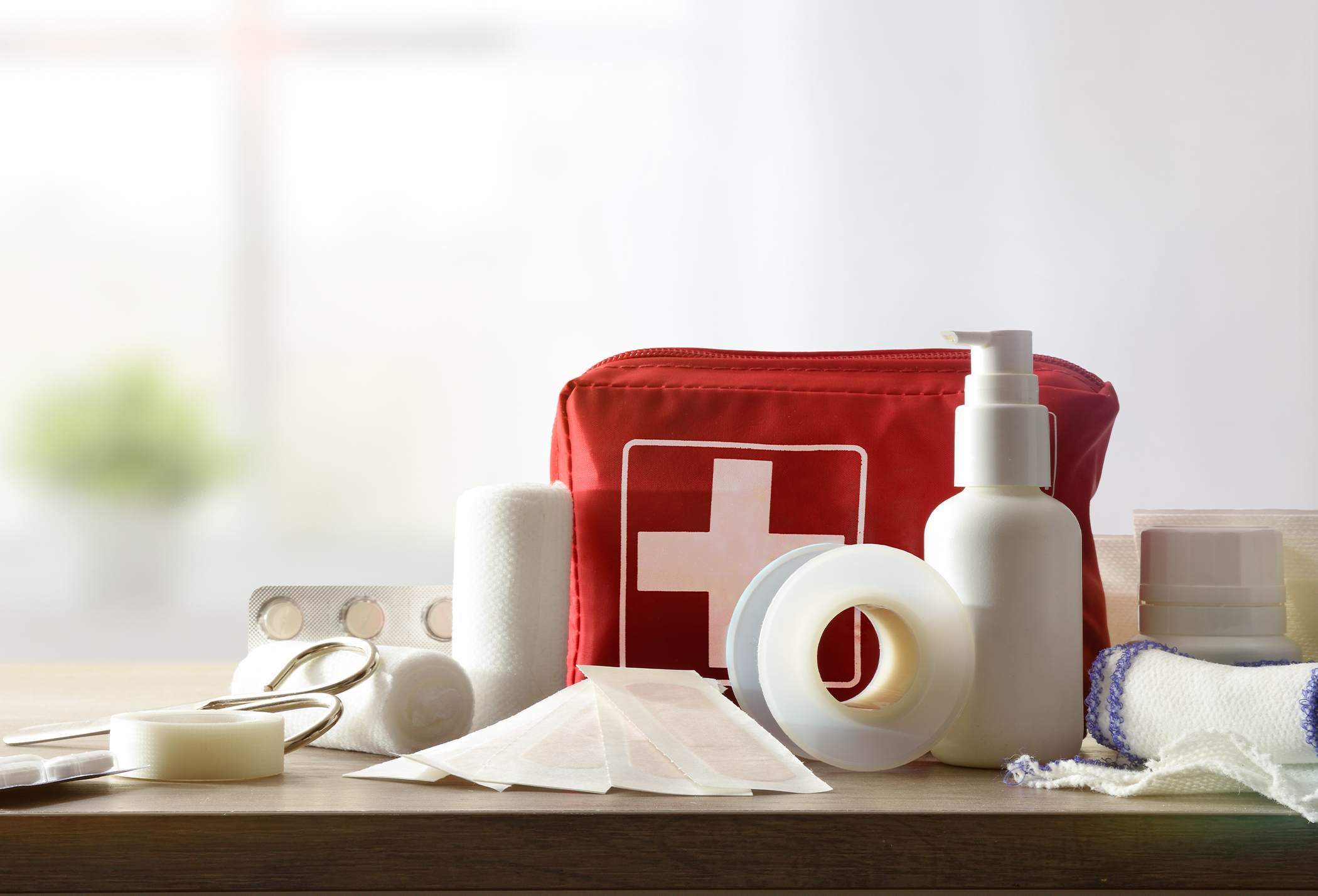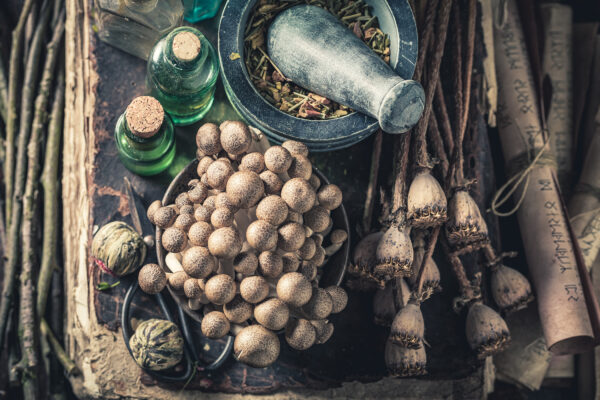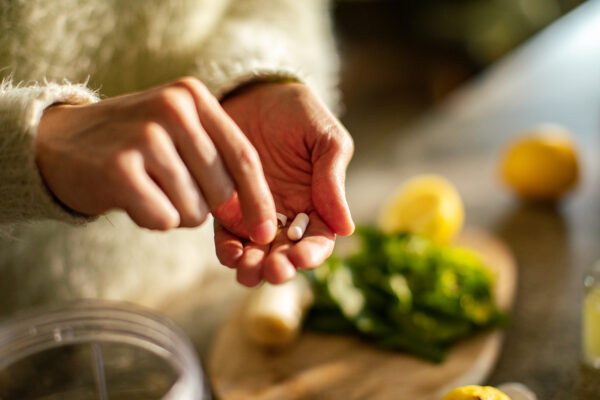For Summertime Holiday Safety
By Joel Thuna and Jamie Bussin
It’s that time of year again. We’ll pack into the car for a road trip, cottage stay or maybe some camping. There are all sorts of allopathic medicines and treatments that work perfectly well. But some have inconvenient side effects or have ingredients that might be toxic. What if there were natural products that could be used instead? In one of my favourite all-time interviews on episode #138 of the Tonic Talk Show/Podcast, I asked Master Herbalist, Joel Thuna, about how to create an all natural first aid kit to treat minor injuries and discomforts. This is a digest of that conversation.
Knowledge is Paramount: While it’s a cool exercise to try to use natural products, it bears mentioning that effective first aid treatment should be predicated on knowledge and understanding first. Before you attempt to treat someone, be sure that you’re properly trained. St. John’s Ambulance, various community or even religious groups have classes that you can take to learn how to administer first aid. And, of course, some ailments or injuries require medical treatment. This information is not meant to replace medical or emergency treatment. Bottom line, if you need to see a doctor or if there is a medical emergency, treat it as such and go to the hospital.
One Size Does Not Fit All: There’s no first aid kit that is going to cover every situation. Joel has one large kit that he uses in the home, a smaller kit for summer travels and mini-kits that are kept in his family’s cars.
That being said there are 12 things that every first aid kit should have:
- Bandages: including patch butterfly, heavy-duty bandages, large bandages, small bandages and waterproof knuckle bandages.
- medical tape
- gauze
- cotton balls
- alcohol swabs and towelettes
- Gloves
- tweezers
- finger splints
- scissors
- safety pins
- matches
- instant cold packs
The Mini First Aid Kit: For road trips you might want to have a small first aid kit handy. In addition to those 12 items, Joel recommends hand sanitizer for the kit you keep in your car. “The last thing you want to do is introduce any bacteria into a wound that you’re trying to clean. Assuming you can’t get anywhere where there’s soap and water, you want to make sure your hands are as clean as they can be. Clean them with a rag or whatever you can to get rid of the dirt. Then you want to get rid of the bacteria, so that’s when you use the hand sanitizer.”
You also want to include an elastic bandage in your mini first aid kit. These are the long, stretchy fabric rolls that can be used to tightly wrap injuries like sprains, to reduce swelling, or they can also be used as a tourniquet. They’re also useful to hold cotton cold packs against the skin. The old-fashioned kind comes with butterfly clips. The newer ones come with pieces of Velcro to fasten.
There are 2 nutraceutical products Joel recommends. The first is tea tree ointment or cream. These are highly antibacterial, can be applied directly to any wound, and can also be applied directly on a bandage. They help prevent infection and they help speed up healing. While tea tree oil is not toxic, tea tree ointment or cream is not orally ingestible.
The second is ginger capsules. If you’re feeling nauseous, perhaps from motion sickness or overeating, ginger is great for settling the stomach and aiding digestion. Joel suggests ginger in organic capsule form, taken with water. But if you don’t regularly keep water in the car, try ginger mints or candied ginger.
If you’re spending time in nature this summer, Joel recommends adding the following products to your natural first aid kit:
Organic, vegan probiotics and activated charcoal: Whenever you travel, you run the risk of digestive illness and upset. The further you are from home, the more likely it is to happen. But it can still happen if you’re close by, and this can range from just a minor annoyance all the way up to incapacitating you and ruining your trip. Both products can help your gut biome deal with bacteria.
Insect sting relief pads and itch relievers: Inevitably someone’s going to get an insect sting or bite. Sting relief pads help relieve the pain after you’ve removed the stinger with your tweezers that are already included, and the itch relievers help reduce the need to scratch those black fly, mosquito and other insect bites. To prevent stings or bites, Joel recommends lemon eucalyptus spray.
Digital thermometer: The reason you want digital as opposed to the old-fashioned kind is that the old-fashioned kind breaks. Joel recommends keeping the thermometer with a chart showing thresholds, so that you’re aware of when the fever should be treated medically; in other words, when it’s time to go to the hospital.
White willow bark: White willow bark, which can be taken in capsule or liquid form, contains salicin, which is a compound very similar to aspirin. It’s potent and a well-tolerated, anti-inflammatory pain reliever. Note: If you can’t take aspirin (ie if you have Reye’s syndrome) do not use willow.
Saline solution: It’s readily available and inexpensive. Make sure that it remains tightly sealed and sterile. When sterile it can be used to irrigate wounds or to treat dry or itchy eyes.
Arnica and Comfrey ointments: Either can be used interchangeably for bruises and sprains. Both of them have been used topically for centuries to reduce the pain and swelling of bruises and speed up their healing. Comfrey contains allantoin, which is a compound that naturally stimulates the growth of new tissue and helps wounds heal even faster..
Aloe Vera: Aloe is best known as a treatment for sunburn. But it can also be used for small contact burns. It cools the burn, soothes the inflammation, and speeds up the healing of all types of burns.
Chamomile tea bags: Chamomile is a gentle, very mild, wonderful tasting tea. It helps soothe an upset stomach, it helps you relax and it can even take the edge off enough to help you sleep. Joel says; “Now, the reason you want it in a tea bag is that when moistened, it can soothe any skin irritations.”
Elderberry capsules: Elderberry is a go-to remedy for stopping cold and flu from ruining your vacation. On top of that, the berries themselves contain a compound that also helps prevent infection from other respiratory viruses.
Organic turmeric capsules: Turmeric has multiple uses. It’s a potent circulation stimulant, it’s an excellent digestive stimulant, but its most effective use is as an anti-inflammatory.
Not everyone necessarily needs a first aid kit that contains nearly 30 items. If you don’t have the space, money…or let’s face it, inclination, choose those items that best reflect your active lifestyle and needs.




